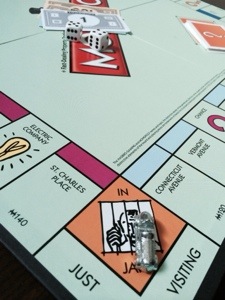Real Estate and Your Money

Do you own a vacation home that you rent out when you or your family isn't using it?
If so, you may want to read these tips from the IRS about rental income and expenses.
Determine the type of income:
Advance Rent is any amount you receive before the period that it covers. Include advance rent in your rental income in the year you receive it regardless of the period covered or the method of accounting you use.
Example: On March 18, 2013 you signed a 10 year lease to rent your property. During 2013, you received $9600.00 for the first years rent and $9600 as rent for the last year of the lease. You must include $19,200 in your rental income in the first year.
Cancelling a lease: If you tenant pays you to cancel a lease, the amount you receive is rent. Include the payment in your income in the year you receive it regardless of your method of accounting.
Expenses paid by tenant: If your tenant pays any of your expense, those payments are rental income. Because you must include this amount in income, you can also deduct the expenses if they are deductible rental expenses.
Example: Your tenant pays the water and sewage bill for your rental property and deduct the amount from the normal rent payment. Under the terms of the lease, your tenant does not have to pay this bill. Include the utility bill paid by the tenant and any amount received as a rent payment in your rental income. You can deduct the utility payment made by your tenant as a rental expense.
Example: Your tenant is a house painter and offers to paint your rental property instead of paying 2 months rent. You accept his offer. Include in your rental income the amount the tenant would have paid for 2 months rent. You can deduct that same amount as a rental expense for painting your property.
Personal use of vacation home: If you have any personal use of a vacation home or other dwelling unit that you rent out, you must divide your expenses between rental use and personal use. If your expenses for rental use are more than your rental income, you may not be able to deduct all of the rental expenses.
Types of Expenses:
- listed below are the most common rental expenses
- Advertising
- Auto and travel Expense
- Cleaning and Maintenance
- Commissions
- Depreciation
- Insurance
- Interest
- Legal and professional fees
- Local transportation expenses
- Management Fees
- Mortgage interest paid to banks, etc.
- Points
- Rental Payments
You generally must include in your gross income all amounts you receive as rent. Rental income is any payment you receive for the use of or occupation of property. Expenses of renting property can be deducted from your gross rental income. You generally deduct your rental expenses in the year you pay them. Publication 527, Residential Rental Property, includes information on the expenses you can deduct if you rent property. This information was provided curtsey of IRS, publication 527. Contact a professional accountant to determine your income and deductions. For more information on rental income and expenses see Publication 527. This publication can be downloaded from http://www.irs.gov or ordered by calling 800-TAX-FORM (800-829-3676).




